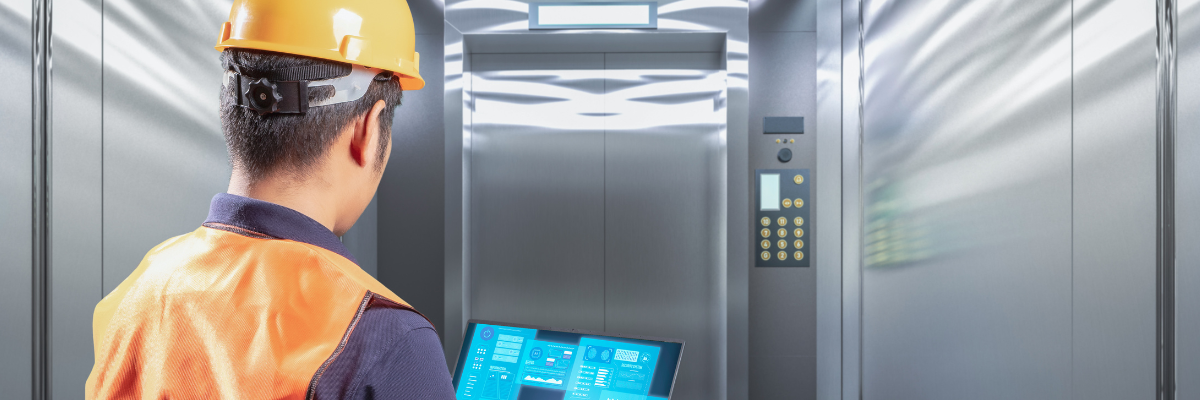
From 1 July, elevators in Spain must comply with the new safety regulations, ITC AEM 1, established by Royal Decree 355/2024. Spain has over a million elevators, and nearly half have been in service for more than 30 years. The aim of this regulation, which sets the technical requirements to ensure user safety, is to reduce accidents and enhance security.
The regulation affects both owners and elevator installation and maintenance companies. According to the Spanish Elevator Business Federation (FEEDA), it will impact 4 out of 10 elevators, which must adapt to the new requirements to pass inspections. If you live in a building with an elevator, it is crucial that your community reviews and updates the elevator according to the new standards.
Índice de contenidos
Will the adaptation be immediate?
The necessary changes will be indicated during periodic inspections, conducted every four years. If the inspection is due in two years, the elevator will continue operating without modifications until then. The timeframe for making the modifications will be between six months to a year, until the next inspection.
What happens if an elevator has an expired inspection on 1 July 2024, when ITC AEM 1 comes into force, or before 1 October 2024?
If the inspection expired or expires before 1 October 2024, the elevator must cease operation. The maintenance company must notify the owner between July and September 2024. If the inspection is not conducted on time, the elevator will be deactivated for safety reasons.
Are there public subsidies to cover the cost of the measures?
Possible subsidies to cover the adaptations will depend on the autonomous communities and their funding lines for cabin adaptations.
Will owners be fined for non-compliance?
Penalties for non-compliance with the regulations can vary according to the severity of the violation, from 60,000 euros for minor infractions to 100,000,000 euros for very serious infractions.
Details of the new regulations
The ‘complementary technical instruction ITC AEM 1 for elevators’ regulates the commissioning, modification, maintenance, and inspection of elevators. The main technical standards include:
- Periodic inspection responsibility: now falls on the elevator owner.
- Shutdown for expired inspection: if the periodic inspection is expired, the elevator must be stopped.
- Load control: installation of a load control device or modernization of the counterweight.
- Leveling improvements: necessary modifications to ensure system leveling.
- Detection systems: installation of detection systems on doors with safety curtains.
- External communication: mandatory bidirectional communication system, accessible to people with disabilities.
- Uncontrolled movements: modifications to prevent or stop the cabin from moving beyond the floor.
- Guide replacement: cylindrical or wooden cabin and/or counterweight guides must be replaced, except for historical exceptions.
- Maintenance record: the owner must keep the original maintenance records.
- Post-shutdown inspection: thorough maintenance review if the elevator has been stopped for more than three months.
- Incidents: anomalies requiring intervention by the maintenance company are considered incidents.
Owner obligations
- Contract periodic inspections (OCA): hiring inspection companies.
- Maintenance company contract: must hire a maintenance company.
- Incident reporting: owners must immediately inform the maintenance company of any incidents.
- Document conservation: maintain original elevator documents and detailed records of all inspections and maintenance.
- Accident reporting: immediate notification to the maintenance company of any accidents causing damage to the installation, people, or pets.
Maintenance company obligations
- Maintenance frequency:
- Every four months: elevators in residential buildings with up to 3 stops, serving no more than 20 dwellings.
- Monthly: for all other elevators.
- Maintenance bulletin: after each review, the maintenance company must provide the owner with a signed bulletin detailing the review and actions taken.
- Maintenance record: the company must keep an updated maintenance record, to be handed over to the owner upon contract termination, including incidents, breakdowns, accidents, repairs, safety component changes, modifications, and inspections.
- Elevator maintenance plan: by 1 July 2025, maintenance companies must have a maintenance plan for each elevator (Article 5.3 ITC AEM 1).
- Elevator operation manual: maintenance companies must have instructions for the safe use of each elevator, per Annex VIII, and provide a copy to the owner. If unavailable, they must be created by 1 July 2026.
- Deficiency correction guarantee: a two-year guarantee for correcting deficiencies, as poor execution is considered the maintenance company’s responsibility.
- Inspection date notification: notify the owner of the next periodic inspection date at least three months in advance. The control body must inform the maintenance company and the owner of the planned inspection date and have access to the necessary documentation.
- Mandatory elevator shutdown: if the periodic inspection is overdue and not conducted, the maintenance company must shut down the elevator within 24 hours and reliably inform the competent industry authority.
- Service withdrawal for unfavorable inspections: elevators with unfavorable inspections or those involved in accidents causing damage must be withdrawn from service within 24 hours.
Inspection frequencies
- Industrial or public buildings: every two years.
- Buildings with more than twenty dwellings or four floors: every four years.
- Other elevators: every six years.
- Elevators over 24 years old: inspection intervals halved.